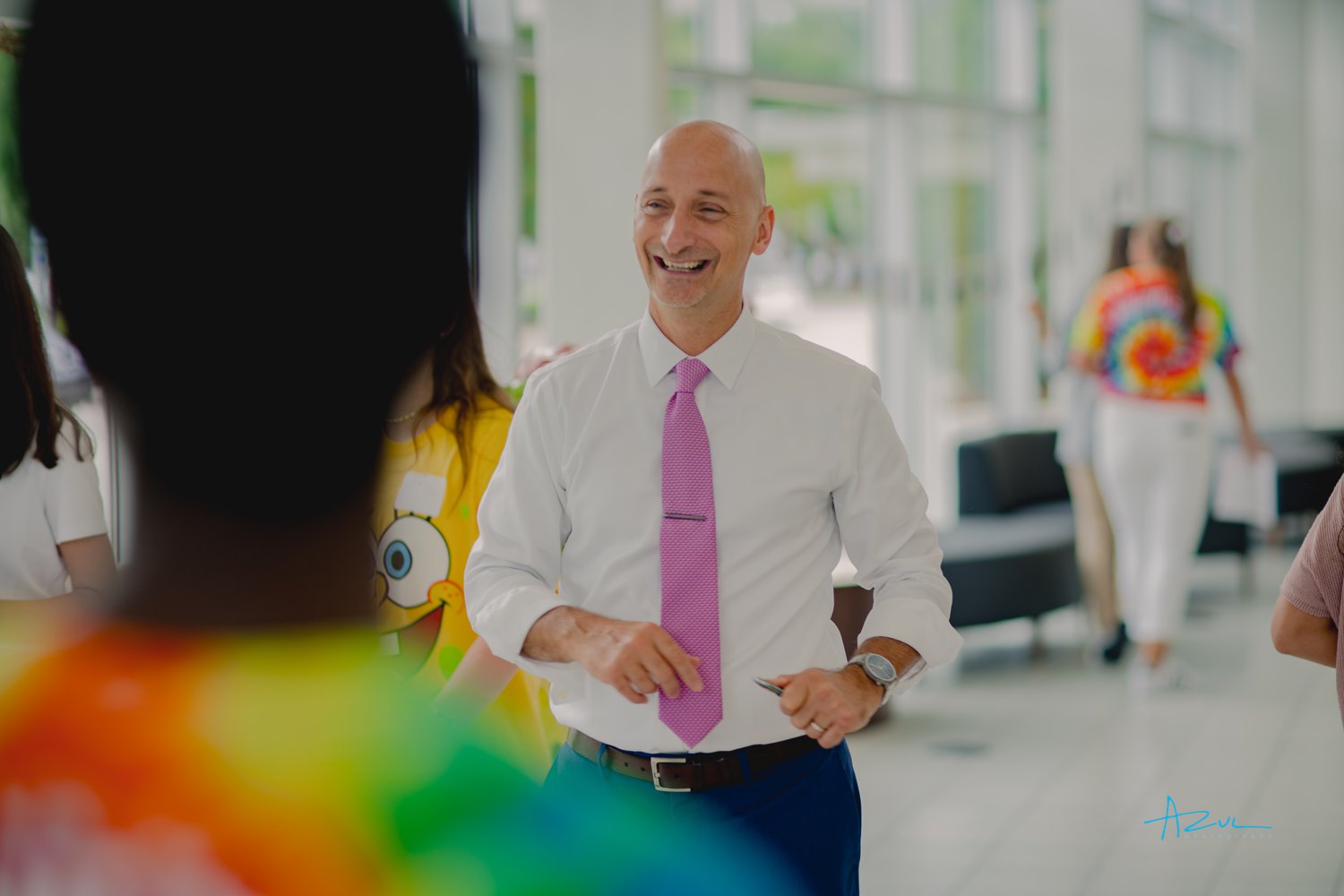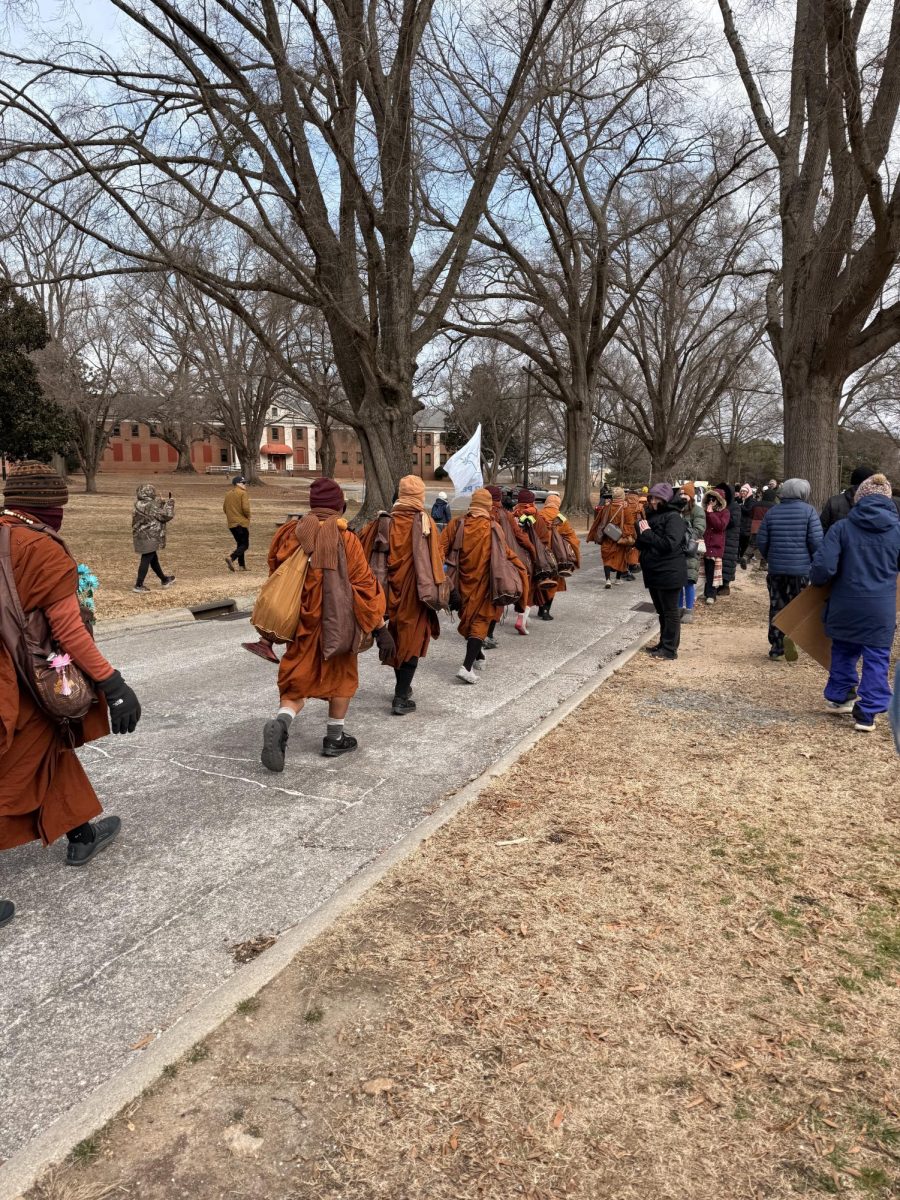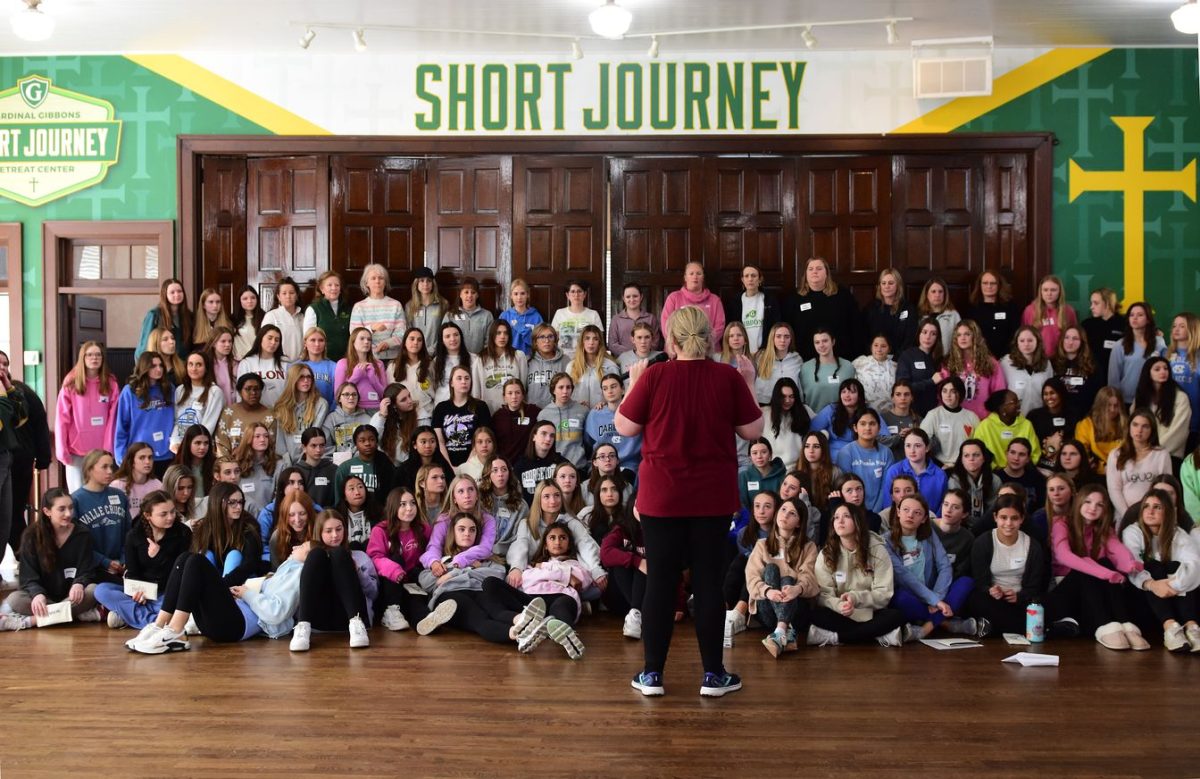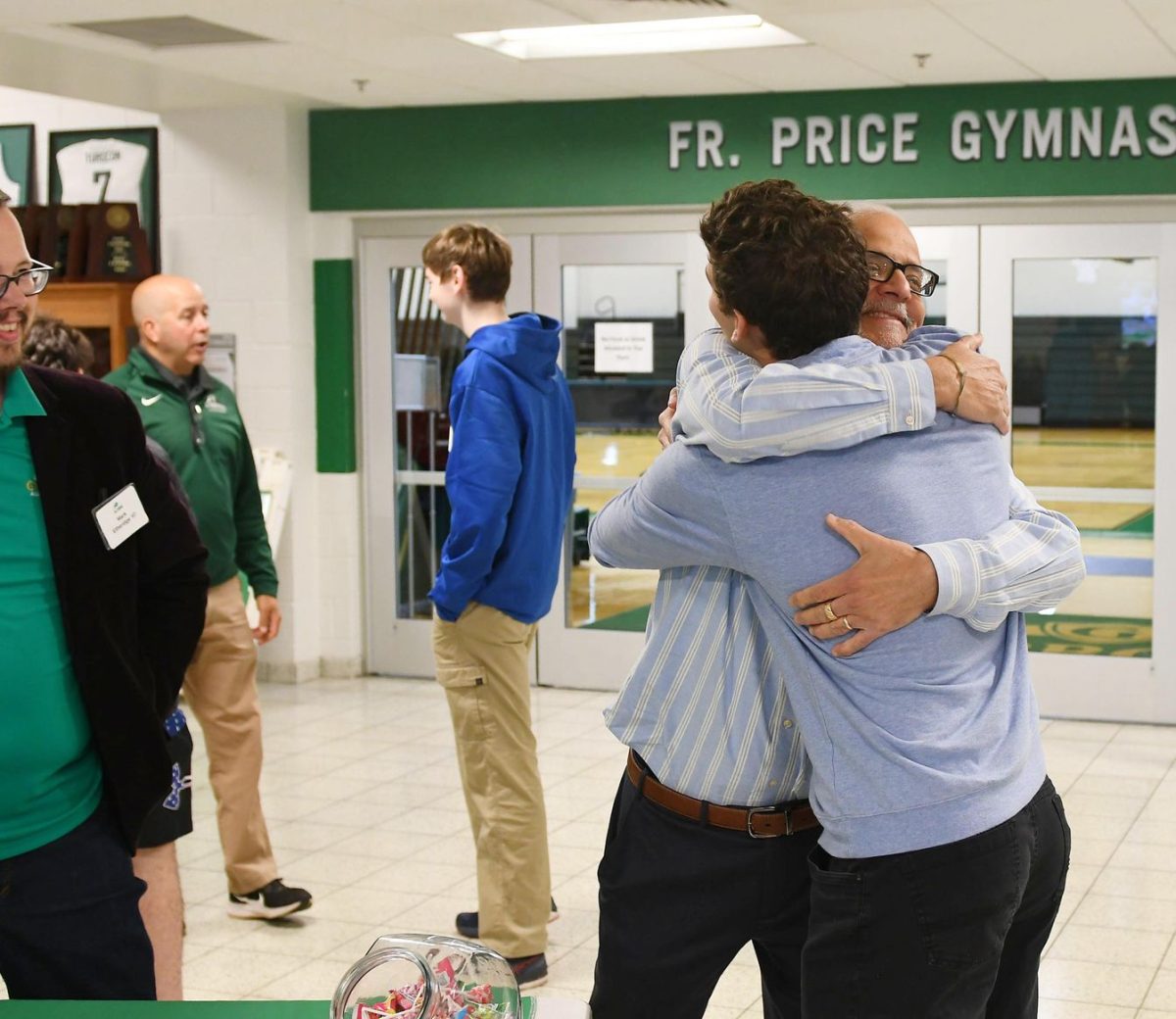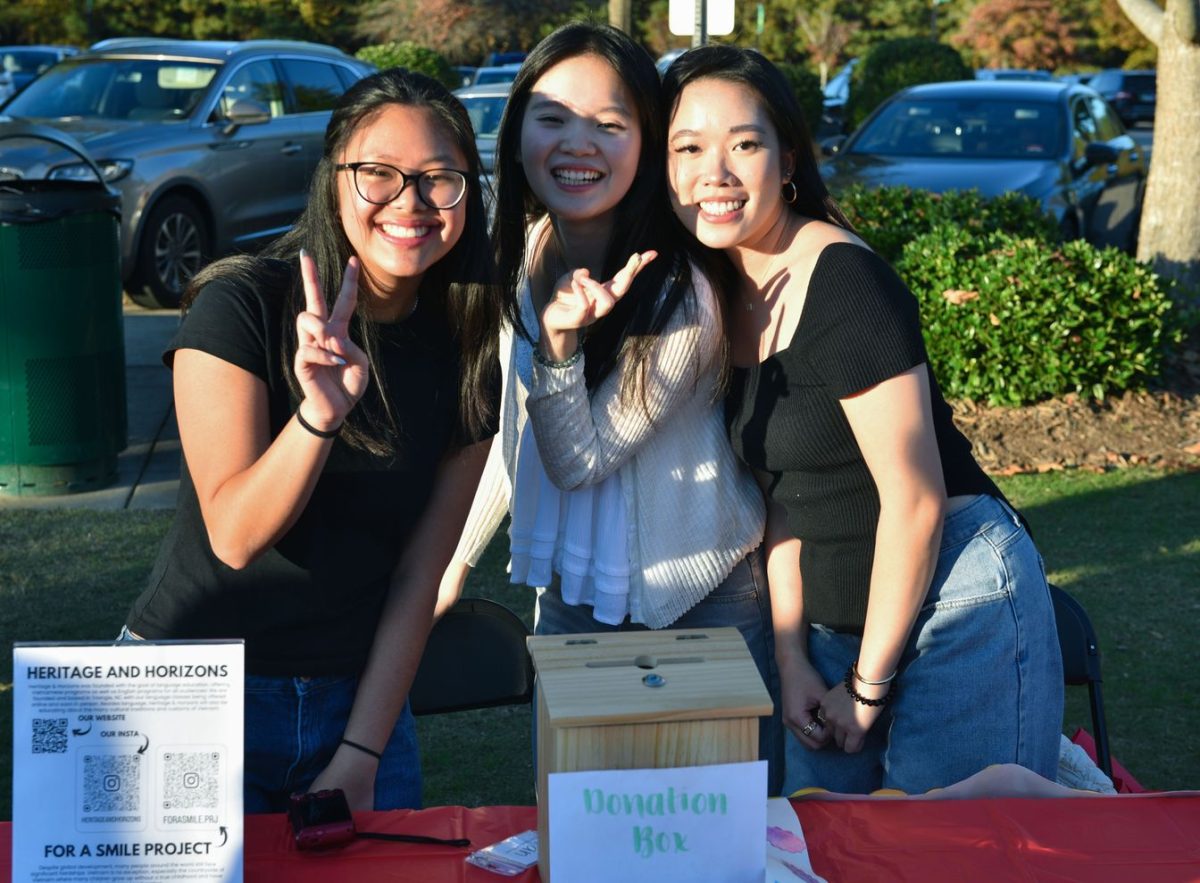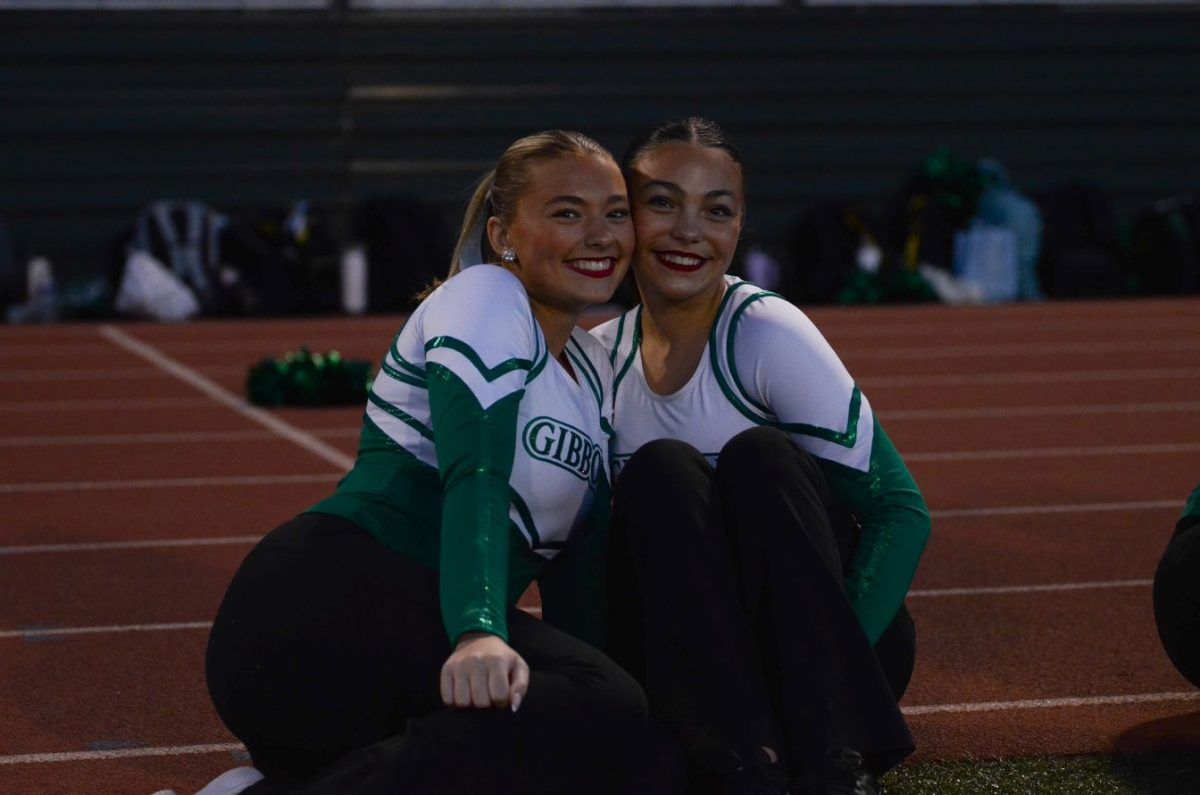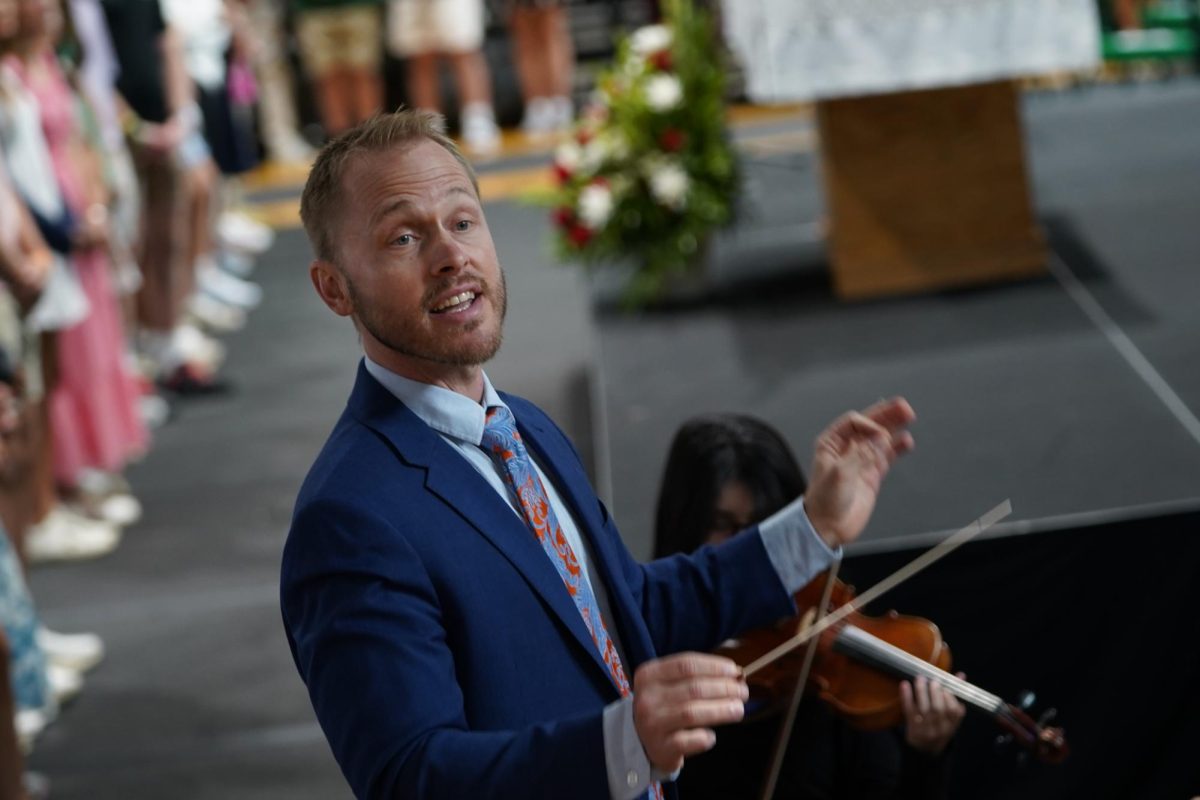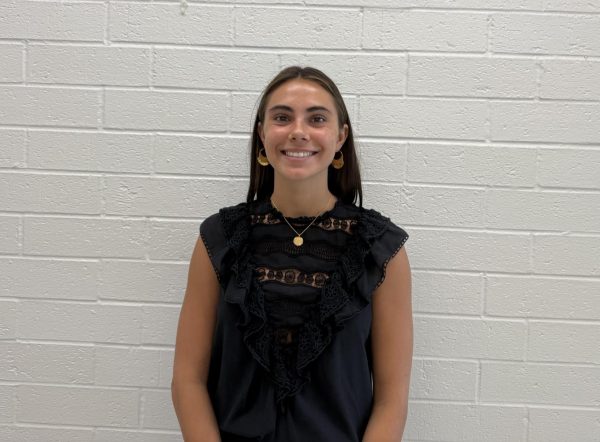As a junior, signing up for a Holocaust Literature class seemed incredibly daunting. What would I learn? Would I cry? Was this class still relevant today?
As I look back as a senior, I realize Holocaust Literature was the most invaluable class I took at Gibbons. I learned about long-rooted antisemitism in Europe, generational trauma, and the lasting effects of propaganda. Constantly, I questioned my own values and beliefs that I had previously held about the Holocaust.
In Holocaust Literature, we focused on survivor testimony through short stories, documentaries, and comic books. We read A Scrap of Time by Ida Fink, Maus by Art Spiegelman, and watched Schindler’s List. The content was not easy to digest, but having the support of fellow classmates and the chance to process together provided comfort.
Mr. Michael Rogosich, Dean of Culture, makes a very difficult class a vibrant one, where stories are passed back and forth and discussions are lively. We often talked as a group, asking questions, sharing personal stories, and delving into difficult topics. I left class every day with more questions than answers. Many times, our assignments were personal reflections on how the lessons of the Holocaust could relate to our lives. For our final exam, we were asked to share the five most important lessons we learned throughout the year.
“Rogo” emphasized the importance of themes like loss, love, and the meaning of life. This focus encouraged us to reflect more profoundly on the subject at hand. While watching The Pianist, Rogo would pause the movie periodically and ask us, “How would you feel if he died right now?”
He believes Holocaust literature is about finding hope in the darkest of places.
“I don’t think it’s a study of the morose and the horrible,” Rogo said. “But once you are confronted with that sort of evil … and darkness, you do like the light even more and are drawn to it.”
Rogosich’s own interest in Holocaust Literature began when he did an independent study with a professor at N.C. State. His professor handed him a book about a young boy during the Holocaust, and after reading it, Rogosich told the teacher he did not enjoy sci-fi. The teacher handed the book back to him and said, “Read the back cover.” It turned out to be autobiographical. That realization stayed with him.
Later, Rogo made an impromptu request to teach a new class. For a couple of years, he paused offering it, as many students weren’t signing up, favoring more practical electives like business. Still, he believes it’s crucial to take the time for a course that is unique and meaningful to you, whether that’s Holocaust Literature or something else.
“We all believe in some of these things, like hope and love,” Rogo said. “But you don’t know if you really believe in them until you are tested.”
We were tested in Holocaust Literature. When do you risk your life to protect another? When is it acceptable to stand up against authority? How do you resist, even when the odds are stacked against you? These were the questions we had to grapple with.
He illustrated this idea with a metaphor: “A candle doesn’t seem very bright in the sunshine. Put a candle in a dark room and it’s super bright.”
The Holocaust embodies unimaginable darkness, yet even in those times, humans were able to find light.
That is the enduring lesson of Holocaust Literature.


